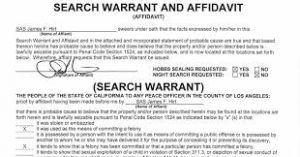The Supreme Court of the United State’s ruling in Birchfield v. North Dakota has resulted in countless appeals all over the country, as defense attorneys and prosecutors try to discern the implications of the ruling. One issue that frequently arises is whether the refusal to undergo a blood test without a warrant is admissible to prove guilt at a trial for DUI charges. The Nebraska Supreme Court recently addressed this issue in Nebraska v. Hood, ruling that Birchfield did not prohibit the introduction of such evidence. If you are charged with a DUI and refused to undergo a warrantless blood test, it is important to know your rights. A seasoned Illinois DUI attorney can assist you in analyzing what defenses may be available to the charges you face.
Allegedly, the suspect in Hood was driving a vehicle involved in a two-car collision. The driver of the other vehicle died at the scene and a passenger from the other vehicle died 9 days later. An off-duty police officer arrived at the scene shortly after the accident and observed a strong odor of alcohol on the suspect’s breath. An officer who responded to the accident drove the suspect to the hospital. The responding officer also noted alcohol on the suspect’s breath and observed that the suspect’s speech was slurred and his eyes were bloodshot. An open bottle of liquor was found in the suspect’s vehicle as well. When he was asked if he had been drinking the suspect stated he had consumed four beers the night before. He was asked to undergo a preliminary breath test and refused. He was then asked to undergo a blood test and refused that as well.
 Illinois DUI Lawyer Blawg
Illinois DUI Lawyer Blawg


